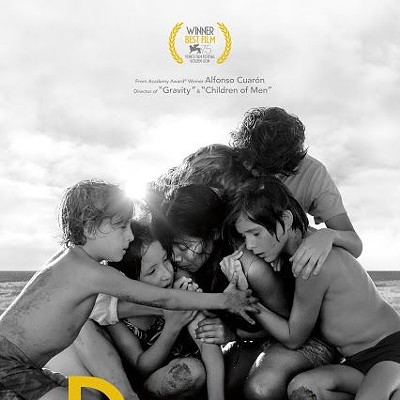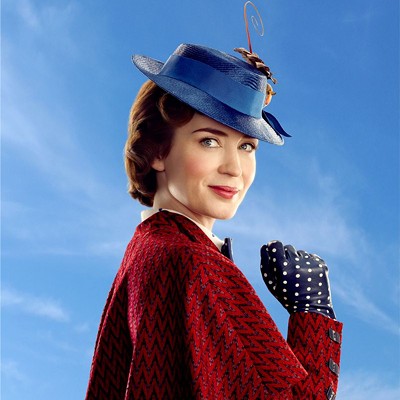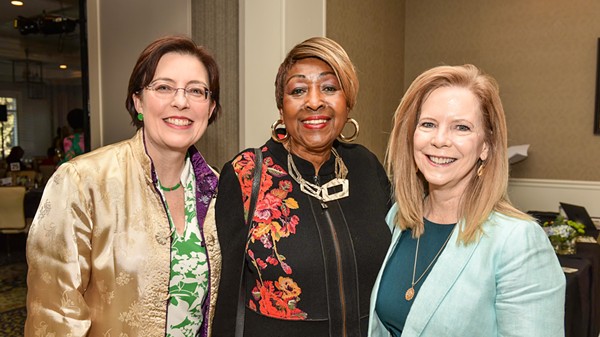Children of Men ***1/2
No matter how closely I scoured each scene in Children of Men, I couldn’t find Charlton Heston lurking anywhere in the background. Yet a Heston cameo would have been apropos, given that this adaptation of P.D. James’ book harkens back to the cinema of the early 1970s, when Hollywood was hellbent on churning out nightmarish visions of the future in such works as THX 1138, Z.P.G., The Omega Man and Soylent Green (the latter two starring Heston). Yet whereas several of the 70s sci-fiers have ripened like cheese over time, it’s impossible to envision Children of Men ever reaching similar camp status. Director Alfonso Cuaron, building a remarkably diverse filmography (Y Tu Mama Tambien, A Little Princess, even a Harry Potter sequel), is an absolute master behind the camera, and aided by spectacular cinematography and set design, he creates a future world (the film is set in 2027) that is utterly believable and quite frightening, not least because it looks so much like our present-day world. The premise here is that women haven’t been able to get pregnant in nearly 20 years, meaning that humankind is on its way out. As a result, chaos is the order of the day, and only in London does there exist a pretense of a (barely) functional society. But when it’s revealed that an immigrant (Clare-Hope Ashitey) somehow finds herself carrying a child, it’s up to a working drone (Clive Owen in a forceful performance) to protect her from the various political factions that would exploit her for their own cynical means. The multi-tentacled storyline begs for a mini-series length that would allow for a detailed exploration of this society’s clashing politics, philosophies and social orders, but armed with only a feature-film running time, Cuaron still manages to pack a lot of incident into this exciting tale of our world as one gargantuan war zone.
Volver ***
Perhaps no performer gets lost in translation as much as Spain’s Penelope Cruz. In her American titles to date, she’s proven to be a big fat zero, yet return her to Spanish-speaking fare, and she reveals herself as a warm, witty and accomplished actress. That’s especially evident in Volver, the latest confection from writer-director Pedro Almodovar. So memorable as the troubled nun in Almodovar’s All About My Mother, Cruz is equally up to the task here; she portrays Raimunda, a headstrong woman who has her hands full managing the other females who inhabit her orbit. This would include her teenage daughter Paula (Yohana Cobo), who just killed the stepfather who was trying to rape her; Raimunda’s sister Sole (Lola Duenas), a plain-Jane counterpart who tries to keep up with her glamorous sibling’s whirlwind activities; Agustina (Blanca Portillo), a family friend trying to solve a mystery involving missing parents; and, most perplexing of all, Raimunda and Sole’s mother Irene (Carmen Maura), who keeps popping up to offer advice even though she’s been dead for several years. Almodovar’s in a playful mood here (no other living director works with splashy colors as effectively), yet there’s no mistaking the seriousness with which he takes the movie’s theme of empowerment through sisterhood. Like George Cukor, another filmmaker known for being a “woman’s director,” Almodovar repeatedly draws superlative performances from his actresses, and in Penelope Cruz, he may have found his latest muse.
Curse of the Golden Flower **
Will the real Zhang Yimou please stand up? This extraordinary talent was once responsible for such towering features as Ju Dou, To Live and Raise the Red Lantern (the latter still one of the top two or three imports of the past quarter-century), movies that led to his being tagged a world-class moviemaker in a relatively short period of time. These were opulent epics that nevertheless managed to display the heartbeat of personal drama -- humanist tales that were highly critical of government and politics (indeed, Ju Dou was banned outright by the Chinese authorities) and sympathetic toward the plight of ordinary citizens existing under brutal conditions. But that was before fellow helmer Ang Lee scored a massive international hit with Crouching Tiger, Hidden Dragon. Since then, Yimou has shifted from people to props, from storylines to stunts. Admittedly, Hero and House of Flying Daggers were both huge critical hits, but honestly, I don’t understand all the fuss: While visually stunning, both maintained a been-there-done-that vibe, and after enduring countless action scenes filled with complex wirework and trick photography, I found myself yearning for the relative simplicity of a Bruce Lee kick to the chest. At least that’s my minority report. Yet even staunch defenders of these recent martial arts opuses might throw their hands up when confronted with Yimou’s latest, the excessive extravaganza Curse of the Golden Flower. It’s based on a play by Yu Cao but seems to have been adapted by Yimou after he sat through a marathon viewing of soap operas. For all its attention to duplicity, incest and murder most foul, it’s less William Shakespeare and more Susan Lucci. Set in 928 A.D., it concerns the power plays that exist between Emperor Ping (Chow Yun-Fat), Empress Phoenix (Gong Li, Yimou’s former leading lady -- both personally and professionally -- back in the 1990s) and their three sons (Jay Chou, Ye Liu and Qin Junjie), one of whom is sleeping with his stepmother. For his part, the Emperor is slowly poisoning his wife; for her part, the Empress is plotting a coup against her spouse. And for their parts, each boy must decide whether to align himself with Mom or Pop. The costume and set designs are staggering, but the story unfolding amidst all the color and pageantry is more risible than rousing. Still, the dialogue-heavy sequences prove to be more compelling than the action scenes, which generally rely on repetitive battle footage and wholly unconvincing CGI work. Perhaps Zhang Yimou will one day return to the sort of picture that established his reputation in the first place. Otherwise, can a Rush Hour sequel be too far off?
Letters from Iwo Jima ***1/2
As dedicated moviegoers will recall, Eastwood already helmed one film in 2006: Flags of Our Fathers, a look at the stories behind the American soldiers who hoisted Old Glory on the Pacific island of Iwo Jima during the World War II battle. Flags largely met with respectable but restrained reviews and once it appeared to be DOA heading into award season, Eastwood and Warner Bros. elected to move Letters up from February 2007 and place it in limited release in order to qualify for the Oscars. Initially smacking of misplaced egotism, the move proved sound: Letters From Iwo Jima is far superior to Flags of Our Fathers, and coming out the gate it managed to snag Best Picture accolades from both the Los Angeles Film Critics Association and the National Board of Review. Whereas Flags entirely provided the Yankee point of view, Letters gives us the perspective of the Japanese soldiers who fought and, for the most part, died in this bloody skirmish. Wisely, Eastwood and scripters Paul Haggis and Iris Yamashita (adapting Tadamichi Kuribayashi’s book, Picture Letters From Commander In Chief) stay away from the politics of the war in the Pacific, choosing instead to focus on the humanity of the Japanese men required to defend this island from a U.S. takeover. Warhawks will object -- how dare Eastwood individualize our enemies! -- but the film’s approach is a commensensical one: If we condemn all foreigners who were pressed into fighting in a war they didn’t start or care to join, then we must likewise apply that mode of thinking to our own American troops, particularly those innocent boys and girls losing their lives in Bush’s reprehensible Iraq folly. The name actor attached to Letters is the magnetic Ken Watanabe, who earned a well-deserved Oscar nomination for overshadowing Tom Cruise in The Last Samurai. Here, he plays General Kuribayashi (the author of the film’s literary source), a sensible leader who knows that he and his army are doomed but still does the best he can in an impossible situation. Kuribayashi is presented as a decent man and a compassionate leader -- unlike many of the other officers, he sees nothing cowardly in soldiers retreating and often suggests it over the expected norm of honorably committing suicide -- yet the real heart of the story rests with Saigo (Kazunari Ninomiya), a baby-faced baker who had to leave a pregnant wife behind when his government ordered him to pick up arms and defend the fatherland.
Notes On a Scandal ***
Judi Dench is so good at what she does that in recent years, she’s become something of a bore. Aside from her atypical role as an Alzheimer’s victim in Iris -- the one time her character wasn’t in control of everything happening on the screen -- she’s always cast as the no-nonsense matriarch with more brains and gumption than anyone else in the room. Her career’s been in a depressing holding pattern, culminating in an utterly unexceptional performance in 2005’s Mrs. Henderson Presents. Notes On a Scandal doesn’t exactly find her breaking away from this mold, but because she’s given so many more nuances to explore, she’s able to excel via her finest work in quite some time. Here, she’s playing a character so pitiless that she refers to a boy with Down’s Syndrome as “a court jester.” The lad is the son of Sheba Hart (solid Cate Blanchett, not surrendering an inch of the screen to her formidable costar), a newly arrived instructor at the same British school where the humorless Barbara Covett (Dench) also teaches. Initially irked by the presence of this luminous newcomer, Barbara eventually becomes her confidante, imagining in her mind that their affection for each other might even run deeper than mere friendship. After Sheba foolishly starts an affair with a 15-year-old student (Andrew Simpson), Barbara feels betrayed, but also realizes that she now has a perfect instrument of blackmail at her disposal. Notes On a Scandal is little more than a lurid melodrama -- one that could benefit from some late-inning twists, I might add -- but Dench and Blanchett, slinging around juicy dialogue by scripter Patrick Marber (from Zoe Heller’s book), turn this into something more.
The Pursuit of Happyness ***
Anyone who’s seen the trailer knows that the movie has only two things on its mind: 1) Win Will Smith an Oscar and 2) drive up Kleenex profits by unleashing a flood of sob-worthy moments. Whether it succeeds in achieving either goal remains to be seen, but 1) Will Smith does indeed turn in a strong performance (though hardly the year’s best) and 2) the picture is skilled enough to generate some genuine pathos to go along with the more calculated melodramatics. This is based on the true story of Chris Gardner, a failed salesman in the 1980s who tries to raise his son (Jaden Christopher Syre Smith) even as he descends further into poverty. The moving and sincere work by Will and his real-life son Jaden (a confidant and relaxed actor) cuts through all pretensions (even the instant happy ending) and allows The Pursuit of Happyness to earn at least some of its tears.
The Good Shepherd ***
This fictionalized look at the creation of the Central Intelligence Agency is methodical in its style and intelligent in its execution, which in some circles will translate as dull, slow-moving and impenetrable . Yet patient viewers will find much to appreciate in this chilly yet absorbing drama, which takes the cherished ideal of patriotism and turns it on its head. On the heels of The Departed, Matt Damon delivers another bold performance that seeks no audience empathy -- here, he’s cast as Edward Wilson, whose role as one of the founders of the CIA finds him over the course of several decades having to contend with all manner of Cold War shenanigans, including the presence of a mole within his own agency. Directed with a fine attention to detail by Robert De Niro (who also appears in a key supporting role), The Good Shepherd repeatedly runs the risk of losing viewers with its flashback-laden structure drafted by scripter Eric Roth. But the strength of the film rests in its clear-eyed vision of Edward Wilson, whose fierce devotion to his country in turn strips him of his humanity and reduces him to a suspicious and paranoid cypher.
Dreamgirls ***
Jennifer Hudson couldn’t even make it to the top on American Idol -- what could she possibly bring to the big screen? If Dreamgirls is any indication, plenty. Delivering a knockout performance that all but dares the Academy to ignore her for a Best Supporting Actress nomination, Hudson is a revelation in the role of Effie, the lead singer for the R&B outfit the Dreamettes who’s relegated to backup vocals once savvy yet sleazy manager Curtis Taylor Jr. (Jamie Foxx) decides that the noticeably thinner Deena (Beyonce Knowles) would better help the Supremes-like group hit it big (the third member, well-played by Anika Noni Rose, is content to remain in backup mode). On the narrative level, this adaptation of the Broadway smash is only too happy to wallow in its show biz clichés, content to let other ingredients (the music, the acting) carry it along.
Night At the Museum **
This film plays with fire by employing the services of three overexposed actors -- Ben Stiller, Owen Wilson and Robin Williams (only Will Ferrell is missing) -- and potentially allowing them to run rampant through an overstuffed fantasy yarn. Mercifully, Stiller is muted, Williams is similarly restrained, and Wilson... well, Wilson is still annoying (two out of three ain’t bad). Stiller plays Larry Daley, the new night watchman at a museum where the exhibits come to life after the venue closes. The benevolent Teddy Roosevelt (Williams) is helpful, but Larry has his hands full evading Attila the Hun, dealing with a mischievous monkey, and settling squabbles between a miniature cowboy (Wilson) and an equally diminutive Roman commander (Steve Coogan).
Babel **1/2
An award winner at Cannes and an early favorite for Oscar enshrinement, Babel arrives courtesy of director Alejandro Gonzalez Inarritu and writer Guillermo Arriaga, the same team that previously gave us 21 Grams and Amores Perros. Certainly, this is the duo’s most ambitious undertaking, yet for all its scattered strengths, it’s also the least satisfying, hampered by a structure that feels schematic rather than organic. By the very nature of the competing story strands and arcs, all three of the pair’s films have risked coming across as cinematic jigsaw puzzles, more interested in moving around pieces until they fit rather than in investing emotionally in the characters. But both 21 Grams and Amores Perros featured a haunting humanity -- to say nothing of more developed characters -- that’s often missing here. Their main topic here is the lack of communication that exists between people, a concept already beautifully deconstructed by Robert Altman in his 1993 gem Short Cuts. But whereas Altman focused exclusively on Los Angelenos, Inarritu and Arriaga go global, employing the butterfly effect to show how the consequences of a specific action can be felt around the world. In one plot strand, a Moroccan goat herder (Mustapha Rachidi) buys a used rifle and gives it to his two sons with the order to shoot any jackals that threaten the herd. In a second storyline, an American couple (Brad Pitt and Cate Blanchett) on vacation are plunged into a nightmare when the wife is accidentally shot by one of the aforementioned young boys, who was merely trying to gauge the distance a bullet can travel. In another, the American couple’s two children are hauled over the U.S.-Mexico border by their nanny (Adriana Barraza), whose decision to attend her son’s wedding looks ill-informed once she experiences difficulty crossing back to our side. And in the final story, a deaf teenage girl (Rinko Kikuchi) in Tokyo grows increasingly frustrated as she’s unable to find any male who’s willing to provide her with love and compassion.

























